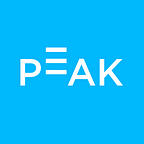Want to Be a Better Athlete? Time to Train Your Brain
Athletes are discovering that when pushing their performance on the field or court, brain training helps.
Close your eyes.
Are they closed? Okay. Now sit back and picture in your mind an elite athlete at the top of their game practicing their sport. You’re probably imagining rippling muscles; the strong arms of Michael Phelps pushing him through thrashing water, or the thick, taut calves of Venus Williams clenching as she swings into a serve.
You imagine this because when we think of peak athletes, we think of the physical changes associated with athletic training. We imagine hours clocked in the gym, leading to faster sprint times, heavier weights, and stronger muscles.
We don’t necessarily think of brain training as an important part of athleticism. But recent studies are helping to reverse this thinking by highlighting the benefits of cognitive training for sports.
(Here, when we refer to cognitive training, we mean training specific skills with digital and virtual-reality games. Studies have also shown that visualization is a powerful cognitive practice to improve athletic performance.)
A recent experiment conducted at UC Riverside tested the effects of cognitive training on the college baseball team’s visual ability. UC Riverside psychology professor Aaron Seitz developed a brain training program, UltimEyes, which asks participants to click on hard-to-see targets and patterns that blend in with the background of the screen.
The baseball team trained with UltimEyes for 12 hours over 30 sessions; each session lasted 25 minutes.
Training with UltimEyes
Okay — so what does picking patterns on a screen have to do with baseball?
Good question. By quickly and repeatedly detecting challenging visual patterns on the screen, the players worked to strengthen their visual cortices, the same way you might strengthen a bicep by picking up a heavy object over and over.
And it worked. At the end of the experiment, the team’s vision had improved by an average of 31%, with some players surpassing 20/20 vision.
This improvement didn’t stop with chart-reading in the testing room, either; another psychologist at UC Riverside, Daniel Ozer, analyzed the baseball games the team played following the study and found an additional 41 runs over the season, resulting in four extra wins.
To understand why cognitive skills can help in sports — and everyday scenarios as well — look no further than a 2011 study at the University of Illinois, which showed how multitasking and visual processing are applied in tests of physical agility.
A team of researchers attached 18 athletes and 18 non-athletes to a virtual reality simulator, placed them on a treadmill that allowed them to walk at their own speed, and asked them to cross a busy (virtual!) street without being hit by a car. To add a multitasking element to the mix, participants listened to music or spoke on the phone while crossing.
The athletes outperformed the non-athletes in the test. This is not a huge surprise. But what’s interesting about the results is that the athletes’ success was not solely due to physical agility on the treadmill; their reactions indicated superior multitasking skills and an ability to process virtual stimuli rapidly. Indeed, they performed better on a computer-based test of reaction time than non-athletes; shorter reaction times were related to fewer collisions when crossing the street.
The researchers at the University of Illinois determined that “cognitive skills trained in sport may transfer to performance on everyday fast-paced multitasking abilities,” meaning the benefits of brain training for athletics — whether virtual or trained by a sport itself — may help with life off the pitch.
Regular brain training and sports go hand-in-hand. If your day involves multitasking, quick decision-making, or reactions to a lot of visual stimuli, then consider coupling a sports regimen with a brain training program to tackle these obstacles like a pro.
Click here to share this article with your Facebook friends.
